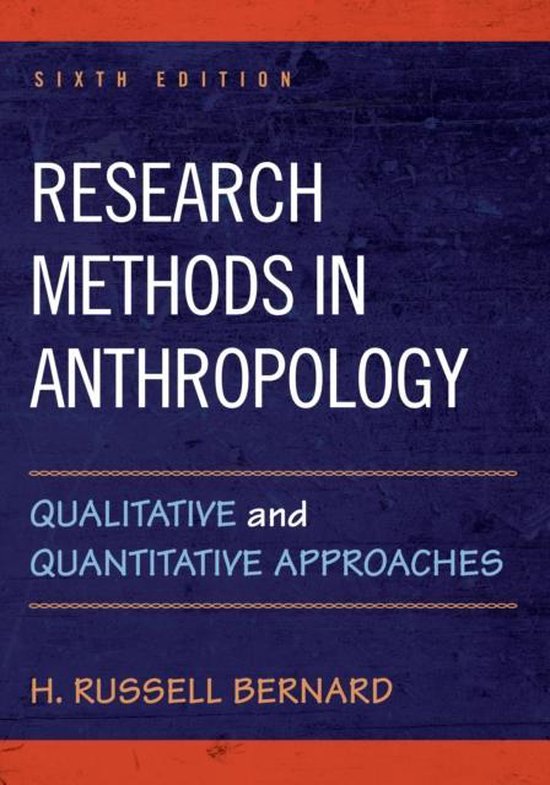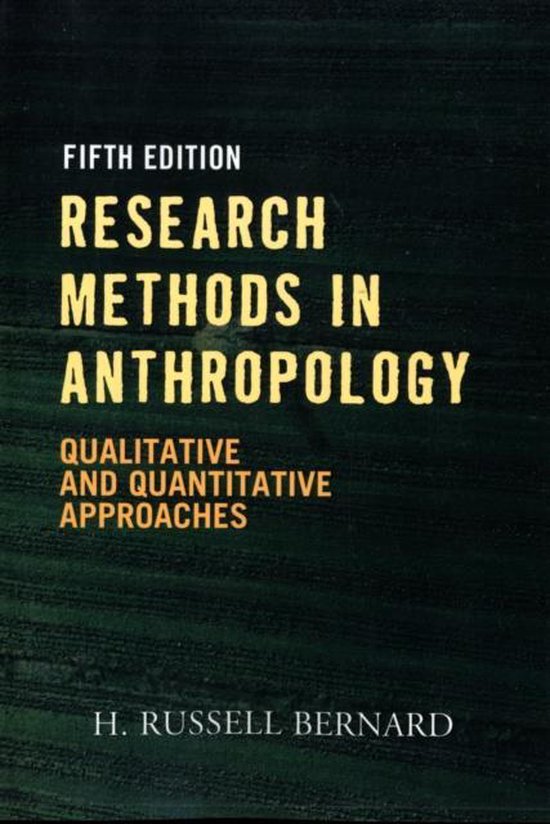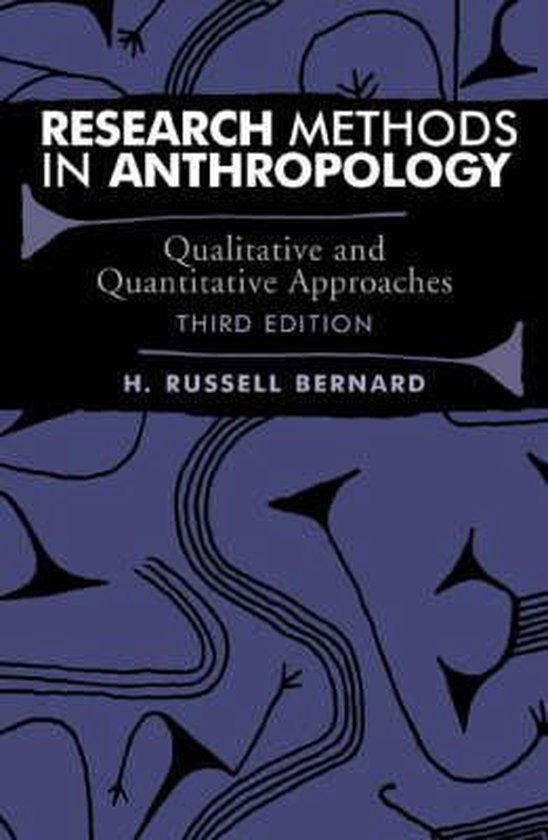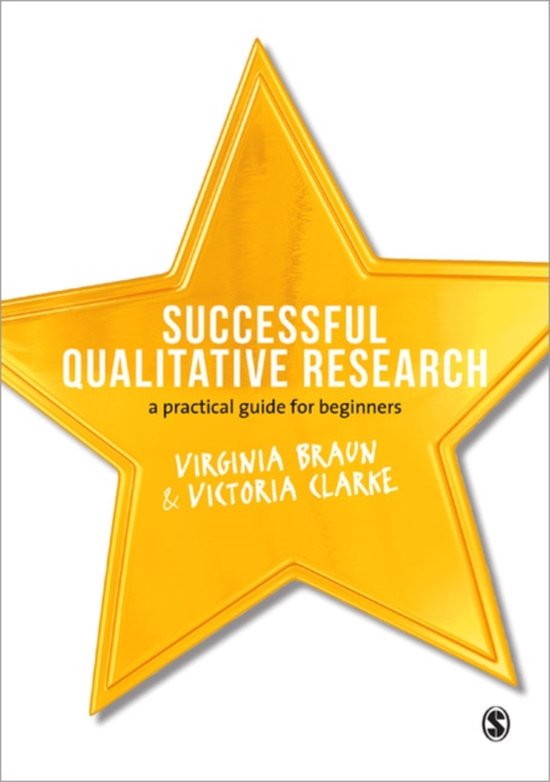
Research Methods in Anthropology
Research Methods in Anthropology is the standard textbook for methods classes in anthropology. Whether you are coming from a scientific, interpretive, or applied anthropological tradition, you will learn field methods from the best guide in both qualitative and quantitative methods.
H. Russell Bernard's Research Methods in Anthropology, Sixth Edition, is the standard for learning about the range of methods for collecting and analyzing qualitative and quantitative data about human thought and human behavior. In the first section of the book, students learn the elements of research design, including how to choose a research topic, how to develop research questions and hypotheses, and how to choose an appropriate sample for their research. In the next section, students learn the methods of data collection, including: open-ended interviewing, questionnaire design, participant observation, direct and indirect observation, building scales in the field, and taking and managing field notes. This section also introduces the methods for cultural domain analysis and network analysis. The last section of the book covers methods for analyzing all these kinds of data, including: finding and analyzing themes in text, conversation and narrative analysis, and decision modeling, as well as descriptive and inferential statistics, multidimensional scaling. and cluster analysis. There is no separate chapter on ethics. That topic is important in every phase of research, even in the beginning phase of choosing a problem to study, and is covered throughout the book. oA comprehensive research methods text for cultural anthropologists oCovers research design, data collection and data analysis oFull coverage of both qualitative and quantitative approaches oWritten in plain language. Turns research methods into fun reading oA real how-to, hands-on text oExtensive bibliography on all topics covered in the book
H. Russell Bernard's Research Methods in Anthropology, Sixth Edition, is the standard for learning about the range of methods for collecting and analyzing qualitative and quantitative data about human thought and human behavior. In the first section of the book, students learn the elements of research design, including how to choose a research topic, how to develop research questions and hypotheses, and how to choose an appropriate sample for their research. In the next section, students learn the methods of data collection, including: open-ended interviewing, questionnaire design, participant observation, direct and indirect observation, building scales in the field, and taking and managing field notes. This section also introduces the methods for cultural domain analysis and network analysis. The last section of the book covers methods for analyzing all these kinds of data, including: finding and analyzing themes in text, conversation and narrative analysis, and decision modeling, as well as descriptive and inferential statistics, multidimensional scaling. and cluster analysis. There is no separate chapter on ethics. That topic is important in every phase of research, even in the beginning phase of choosing a problem to study, and is covered throughout the book. oA comprehensive research methods text for cultural anthropologists oCovers research design, data collection and data analysis oFull coverage of both qualitative and quantitative approaches oWritten in plain language. Turns research methods into fun reading oA real how-to, hands-on text oExtensive bibliography on all topics covered in the book
| Auteur | | H. Russell Bernard |
| Taal | | Engels |
| Type | | Paperback |
| Categorie | | Mens & Maatschappij |





